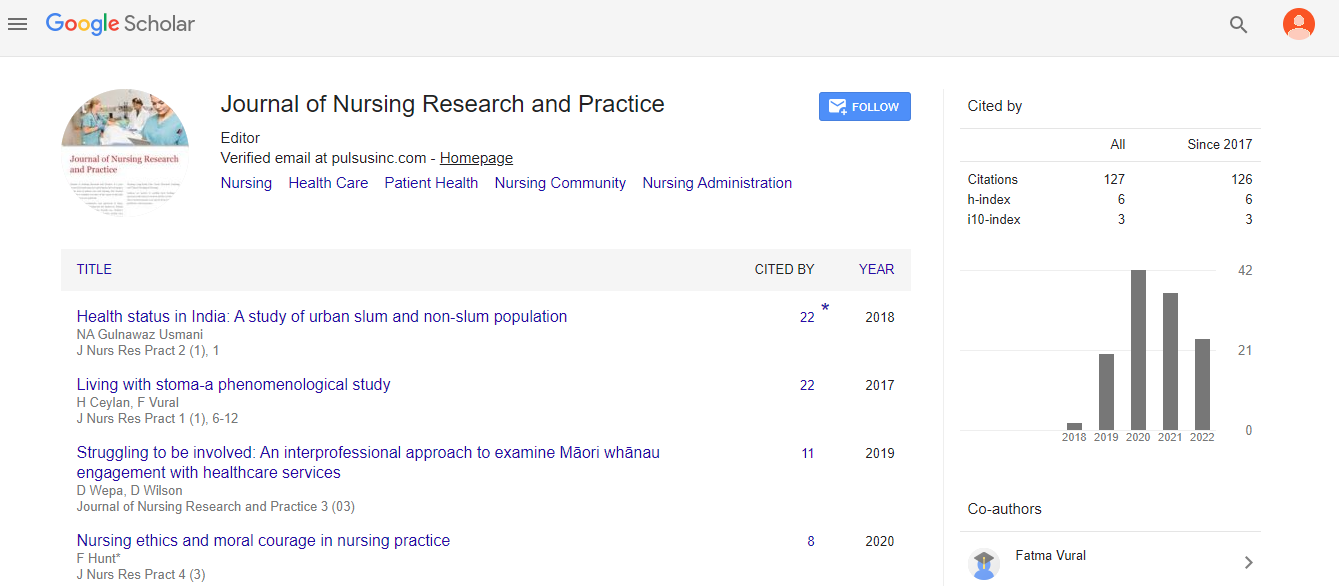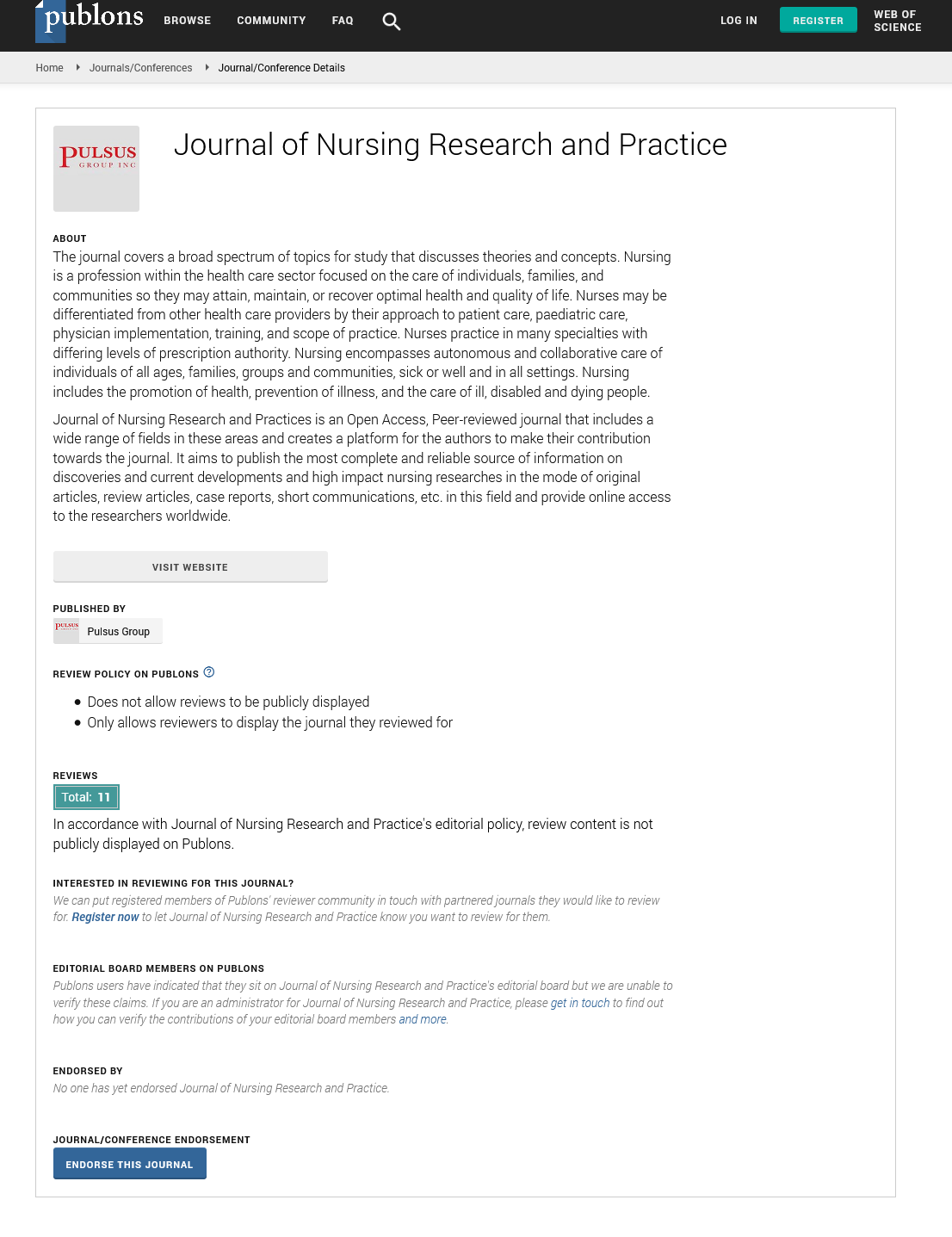THE INTERNATIONAL YEAR FOR NURSE AND MIDWIVES
Received: 16-Nov-2020 Accepted Date: Nov 20, 2020; Published: 26-Nov-2020
This open-access article is distributed under the terms of the Creative Commons Attribution Non-Commercial License (CC BY-NC) (http://creativecommons.org/licenses/by-nc/4.0/), which permits reuse, distribution and reproduction of the article, provided that the original work is properly cited and the reuse is restricted to noncommercial purposes. For commercial reuse, contact reprints@pulsus.com
Abstract
The WHO has announced 2020 the International Year of the Nurse and
The WHO has announced 2020 the International Year of the Nurse and the Midwives.
Nurses play a vital role in providing best health services. They always dedicate their lives for caring of mothers and children; giving lifesaving immunizations and also health advices; looking after older people and generally meeting everyday essential health needs. They are only point of care in their communities. The world needs 9 million more midwives if it is to achieve universal health coverage by 2030 [1].
Nursing includes independent and combined care of individuals of all families, ages, sick or well, groups and communities. It also includes the health promotion, prevention from the illness, and all type of care of ill, disabled and dying people. Nurses are often the unsung heroes in health care facilities and emergency response. They are mostly the first to detect health emergencies and work on the front lines of disease prevention and the delivery of primary health care, prevention, including promotion, treatment and rehabilitation.
Impact
Around, 50% of the global health workforce consisted of the Nurses and midwives. However, Nurses and midwives also account 50% of the global shortage of health workers, which is valued at 4 million. Since in most countries they form the majority of the clinical health workforce, developing and strengthening human resources for health means recognizing that nursing and midwifery services play a vital role in improving health service delivery.
Nursing also represents an important share of the female workforce; worldwide, 70% of health and social workers are women. Achieving the goal of health care for all will need huge efforts to reduce the shortage of health workers around the world.
Response From WHO
WHO recognizes that nurses play vital role in primary health care delivery worldwide – including research, treating the injured, disease prevention, palliative care and more – which is represented through several World Health Assembly resolutions [2].






